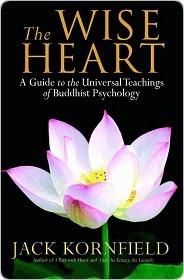More on this book
Community
Kindle Notes & Highlights
in Buddhism, virtue is not about young girls or tepid, law-abiding weaklings. It is the foundation for radical change. It means that we carry ourself with truthfulness, integrity, passion, and purpose in all we do. This is the powerful, even fierce force that ennobles individuals and inspires social justice and equality worldwide. Just as a life of virtue brings happiness, it also packs a punch.
More than refraining from the misuse of intoxicants, we cultivate wakefulness.
This is a twenty-first principle of Buddhist psychology: 21 Virtue and integrity are necessary for genuine happiness. Guard your integrity with care.
Buddhist psychology approaches healing in the same way. Mindfulness requires a suspension of judgment. It is an open inquiry into what is painful, pleasant, joyful, or shameful, without judging anything as right or wrong. This is the first step in healing, a clear seeing and deep acceptance of what is.
“Your power is so limited, it can only destroy life. What about the power to preserve life?”
“Forgiveness means giving up all hope for a better past.” Forgiveness is a way to move on.
Whenever we forgive, in small ways at home or in great ways between nations, we free ourselves from the past.
Those who say that spirituality has nothing to do with politics do not know what spirituality really means. —Mahatma Gandhi
genuine happiness and meaning will come through tending to suffering. We overcome our own despair by helping others to overcome theirs.
The problem with the world is that we draw our family circle too small. —Mother Teresa
In facing the truth, the bodhisattva deliberately bears witness to our personal and collective suffering with compassion.
A boddhisattva’s vision is the necessary step toward transformation of the world.
At a more sophisticated level, Buddhist psychology shows how training in mindfulness, integrity, generosity, and respect can create a healthy society. From village schools to community meetings, Buddhist practices of right speech, right action, and right livelihood foster moral character and the creation of harmony.
The work of both Gandhi and Martin Luther King Jr. was founded on these principles, on ahimsa—or non-harming—as a path to happiness.
Sometimes Ajahn Chah described it like a koan, where “there is neither going forward, nor going backward, nor standing still.” To discover the middle way, he went on, “Try to be mindful, and let things take their natural course. Then your mind will become still in any surroundings, like a clear forest pool. All kinds of wonderful, rare animals will come to drink at the pool, and you will clearly see the nature of all things. You will see many strange and wonderful things come and go, but you will be still. This is the happiness of the Buddha.”
Ajahn Sumedo teaches us to open to the way things are: “Of course we can always imagine more perfect conditions, how it should be ideally, how everyone else should behave. But it’s not our task to create an ideal. It’s our task to see how it is, and to learn from the world as it is. For the awakening of the heart, conditions are always good enough.”
“Seeing misery in those who cling to views, a wise person should not adopt any of them. A wise person does not by opinions become arrogant. How could anyone bother those who are free, who do not grasp at any views? But those who grasp after views and opinions wander about the world annoying people.” I like to think that the Buddha said this last sentence with a laugh.
Marcel Proust once said, “The voyage of discovery lies not in finding new landscapes, but in having new eyes.”
Here is a twenty-sixth principle of Buddhist psychology: 26 A peaceful heart gives birth to love. When love meets suffering, it turns to compassion. When love meets happiness, it turns to joy.
We are consciousness knowing itself.


